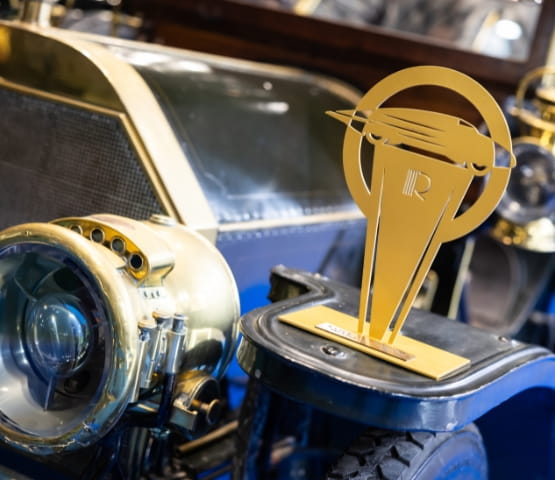Mercedes Simplex 60HP ‘King of Belgians’
Mercedes Simplex: the most modern of vintage cars
In 1890, Gottlieb Daimler, the inventor of the internal combustion engine, founded Daimler-Motoren-Gesellschaft (DMG), which quickly established itself as one of the most successful engine manufacturers of its day. It would take another ten years for history to change its course. Having just taken over the reins of the family business following the death of his father, Pierre Daimler was approached by Emil Jellinek, a wealthy businessman and DMG representative in Nice, to design a new kind of vehicle. With the help of Wilhelm Maybach, DMG's chief engineer, the three men designed their first vehicle, which was to change the history of the automobile forever. Christened the Mercedes 35HP, a reference to Emil Jellinek's daughter, the vehicle was a complete departure from the productions of the time and is considered to be the first racing car ever built. Although it proved to be a success, Paul and Wilhelm set their sights even higher, combining performance with comfort. Simplicity of use also had to be a priority, and the vehicle derived its name from this: the Mercedes Simplex.


Mercedes Simplex: a 60 hp version that would mark automotive history
While it had a number of different engines, the Mercedes Simplex will go down in history thanks to a particular model that saw the light of day in 1903. In this 60 hp version, the vehicle was fitted with a 9200 cc in-line 4-cylinder engine delivering a top speed in excess of 130 km/h, as well as a chassis with a lowered centre of gravity, 4-speed H gearbox, honeycomb radiator, etc. All these innovations helped the vehicle live up to its initial promise.
The model presented at the 2024 edition of Rétromobile was originally purchased by British media magnate Alfred Harmsworth in 1903. Although he initially decided to enter it with success in a number of motor races, such as the Gordon Bennett Cup and the Ballybannon Hill Climb, the German vehicle was later sent to the workshops of the firm J. Rothschild et Fils to be fitted with the new bodywork that would earn it its famous nickname: the ‘King of Belgians’. Named after the first customer to order it, King Leopold II of Belgium, this type of body allowed the Simplex to carry two new passenger seats at the rear. A luxury for its time.
Alfred Harmsworth fell in love with the car and, after 10 years of loyal service, bequeathed it to his son. In 1956, after being stored in the garage of the family manor house, the car joined the collection of the new National Motor Museum in Beaulieu. It would remain there for almost 60 years. In 2024, the car won the Preservation Trophy at Rétromobile thanks to its excellent state of conservation. Shortly after its arrival at the world's most exciting pop-up garage, it left the Harmsworth clan for good after more than 120 years with them.

